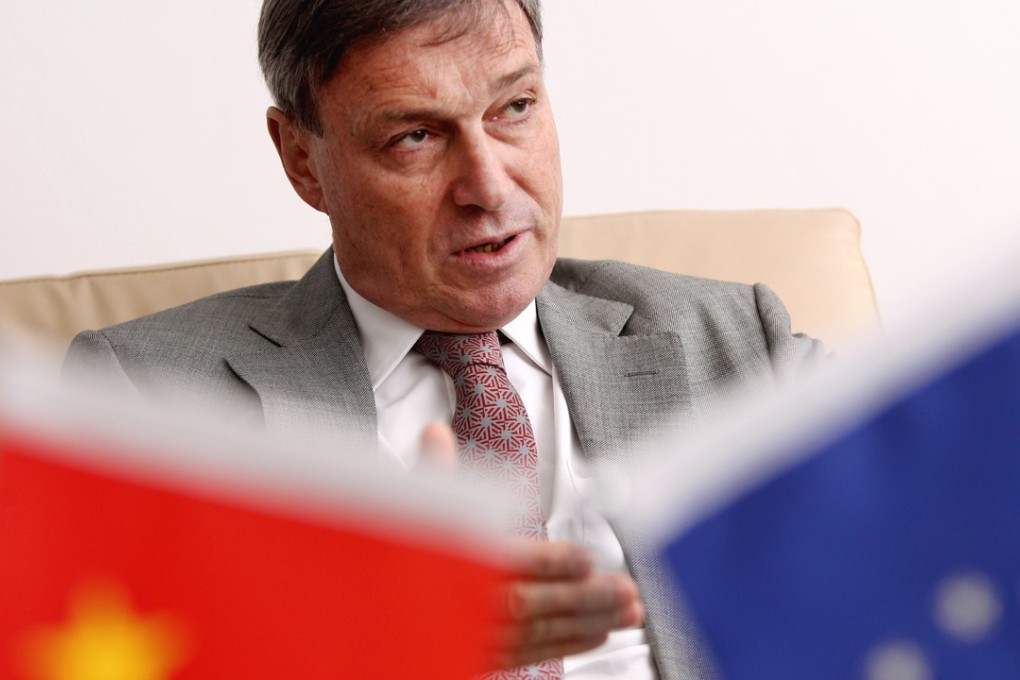Call to respect EU unity as China builds ties with eastern Europe
European Union also hopes talks on investment pact will reach ‘decisive phase’ this year

The unity of the European Union should be fully respected as countries from central and eastern Europe edge closer to China, the EU ambassador to China said on Wednesday.
Hans Dietmar Schweisgut also called for Beijing and Brussels to make decisive progress on bilateral investment treaty talks this year, and to forge economic ties that are based on rules and transparency.
The China-led 16+1 grouping to build ties with central and eastern European countries through investment and infrastructure deals has been controversial within the EU since it was launched in 2012, amid concerns that Beijing is trying to create division by exerting its economic influence on smaller member states. Of the 16 European countries, 11 are members of the EU.
But Schweisgut said at a press briefing in Beijing that 16+1 was complementary to the broader relationship between China and the European Union.
“They all know what being a member of the European Union means and implies,” said Schweisgut, adding that members’ decisions relating to EU policies were made in coordination with EU commissions and other institutions.